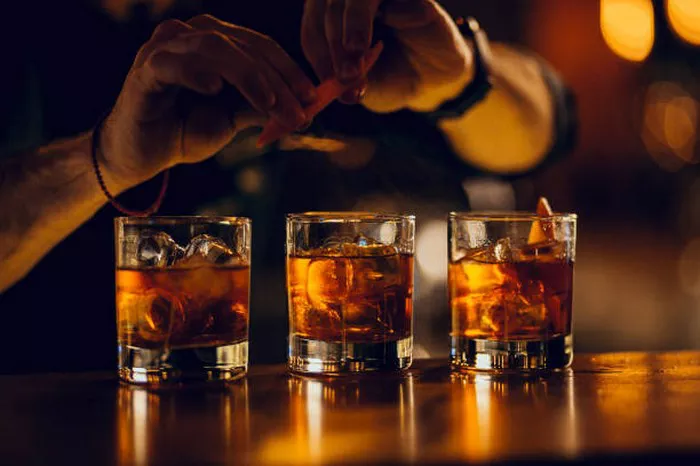The world of alcoholic beverages is vast and intricate, filled with various classifications and categories. Within this realm, the distinction between spirits and liqueurs holds paramount importance. Is Cognac a Spirit or Liqueur is a question that often arises, eliciting curiosity among enthusiasts and connoisseurs alike. To comprehend the nuances, one must delve into the characteristics, production methods, and regulations surrounding Cognac to elucidate its classification within the spectrum of alcoholic beverages.
Understanding Spirits and Liqueurs
Before delving into the specifics of Cognac, it is crucial to discern the fundamental differences between spirits and liqueurs. Spirits, commonly known as hard liquor, are alcoholic beverages distilled from fermented grains, fruits, or vegetables. They undergo distillation processes that concentrate alcohol content. Examples include whiskey, vodka, gin, rum, and brandy. Conversely, liqueurs are sweetened spirits flavored with various ingredients such as fruits, herbs, spices, or cream. The addition of sugars distinguishes liqueurs from other spirits, resulting in a sweeter taste profile. Classic examples encompass Grand Marnier, Amaretto, and Bailey’s Irish Cream.
Cognac: A Refined Elixir
Cognac, often revered for its complexity and heritage, unequivocally falls into the category of spirits. Its journey from grape to glass involves a meticulous distillation process that exemplifies its spirit classification. Originating from the Cognac region in France, this distilled spirit is made from specific grapes, primarily Ugni Blanc, Folle Blanche, and Colombard, which contribute to its distinctive flavor profile.
The Distillation Process
The production of Cognac involves double distillation in copper pot stills. After the grapes undergo fermentation, the resulting wine is distilled twice to increase alcohol concentration. The clear liquid extracted from this process, known as eau-de-vie, forms the essence of Cognac. This eau-de-vie is then aged in oak barrels, allowing it to mature and acquire complex flavors, ranging from fruity and floral to spicy and nutty, over several years.
Regulations and Standards
To uphold its quality and authenticity, Cognac is subject to stringent regulations set forth by the Bureau National Interprofessionnel du Cognac (BNIC). These regulations govern various aspects, including the geographical boundaries of production, grape varietals permitted, distillation methods, aging duration, and minimum alcohol content. Such regulations reinforce Cognac’s status as a distinguished spirit rather than a liqueur.
Aging and Maturation
One of the defining characteristics of Cognac is its aging process. The spirit matures in oak barrels for a minimum period stipulated by the BNIC. The aging duration significantly impacts its flavor, color, and overall quality. Cognac aging classifications include VS (Very Special), VSOP (Very Superior Old Pale), and XO (Extra Old), denoting different aging periods that influence the depth and complexity of the final product. This meticulous aging process further solidifies Cognac’s classification as a spirit.
See Also: what does vsop in cognac mean
Tasting Profile and Complexity
Cognac’s tasting profile encompasses a broad spectrum of flavors, ranging from floral and fruity notes in younger iterations to deeper, richer tones in well-aged varieties. The complexity arises from the interaction between the spirit and the oak barrels during the aging process, infusing the Cognac with nuances of vanilla, caramel, spice, and oak. Its intricate flavor profile mirrors the hallmarks of a meticulously crafted spirit.
Versatility in Consumption
While Cognac is often sipped neat or on the rocks to savor its intricate flavors, its versatility extends to its use in cocktails. Mixologists and enthusiasts appreciate its ability to elevate classic cocktails such as the Sidecar and Sazerac, where its depth and character complement other ingredients. This adaptability in mixology reinforces its classification as a spirit due to its ability to enhance various drink profiles.
Distinctiveness in the Market
In the expansive landscape of alcoholic beverages, Cognac stands out for its distinctiveness as a premium spirit. Its association with luxury, heritage, and craftsmanship has carved a niche in the market. Its exclusivity and adherence to stringent production standards further reinforce its status as a spirit rather than a liqueur.
Conclusion
In conclusion, the query “Is Cognac a Spirit or Liqueur” unequivocally categorizes Cognac within the realm of spirits. Its meticulous distillation process, adherence to strict regulations, distinctive aging methods, complex flavor profile, and versatility in consumption all align with the characteristics attributed to spirits. While liqueurs and spirits share commonalities, the production, standards, and tasting profiles of Cognac distinctly position it as an esteemed and revered spirit in the world of alcoholic beverages.


